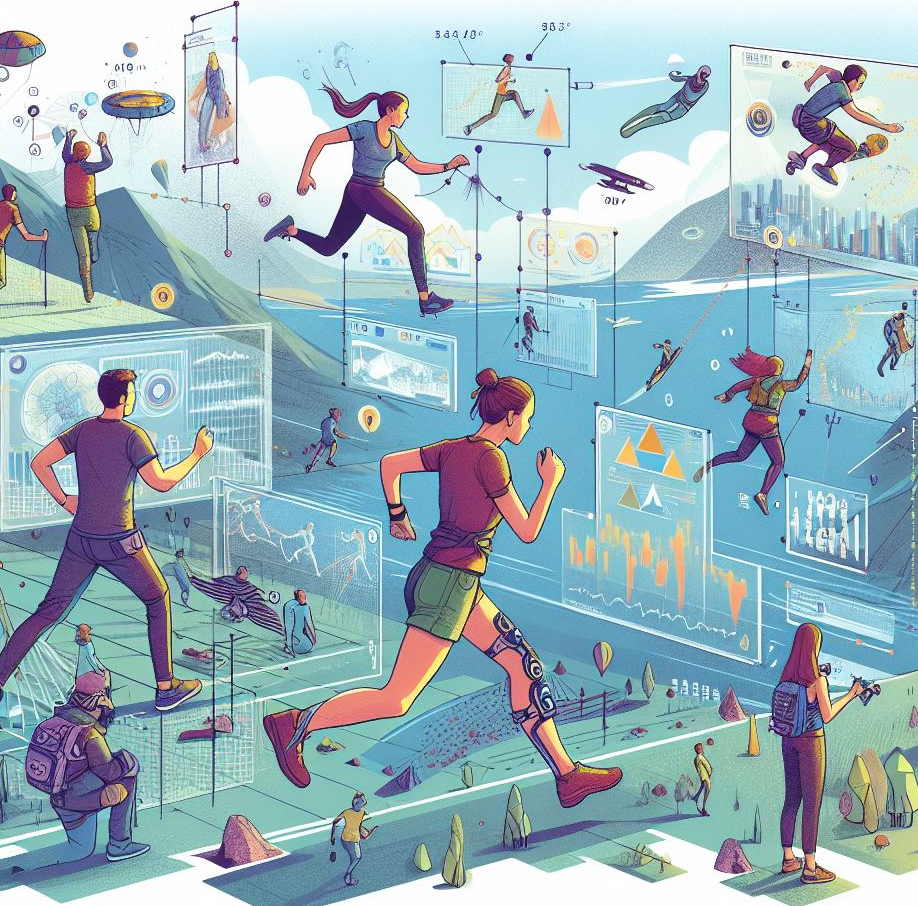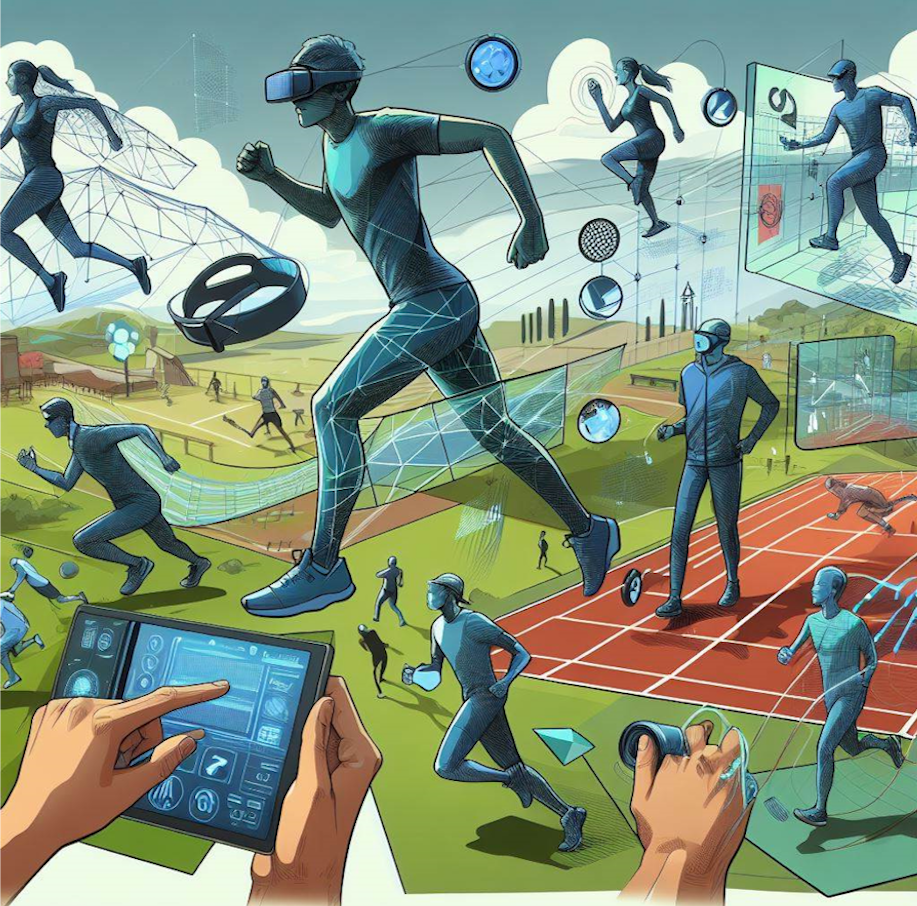First-Person Visualizations for Physical Activities
First-Person Visualizations for Outdoor Physical Activities - Challenges and Opportunities
First-Person Visualizations for Outdoor Physical Activities: Challenges and Opportunities - Workshop at IEEE VIS 2024
This half-day workshop will gather researchers and practitioners interested in first-person visualizations for physical activities. Given the unexplored nature of the topic, the goal of this first workshop is to collect speculative designs informed by experience and expertise as well as work in progress, for example leveraging technological advances in SportsXR (immersive analytics in sports), sensors and immersive visualization techniques that provide (real-time) access to information to people performing physical activities in highly dynamic environments.
The goals of this workshop are to i) explore the space of first-person visualizations for physical activities and ii) derive a research agenda for the visualization community. We envision this output to take the form of a publication of which workshop participants will be invited to become co-authors.
The workshop will be part of IEEE VIS 2024 (October 13-18) and will be held in a hybrid format (St. Pete Beach, Florida, USA, and anywhere on earth on Zoom).
The workshop will take place on Sunday, October 13, 2024, morning.
Submit your work using this Google Form
Call for Participation
First-person visualizations refer to visualization support for people while they are performing sports and other physical activities – a topic that intersects visualization and multiple HCI disciplines concerned with wearables, virtual and augmented reality, ubiquitous computing, social computing, and more. This context, in which the viewer, or analyst, is the person performing a (sometimes strenuous, physically and cognitively demanding) activity raises many challenges, such as:
- Design and technology challenges, such as how might we leverage emerging wearable technology such as AR glasses? How to design visualizations for such devices? How to consider the outdoor environment in the design of such interfaces? What should new technology support and enable?
- Interaction challenges, such as how to interact with visualizations in these non-typical office or lab environments? Can multi-modal approaches to interaction be leveraged and how?
- Perceptual and cognitive challenges, such as how might visualization be potentially distracting and negatively affecting people’s main focus of performing their activity? How might attention, perception and cognition be affected by fatigue, effort, and concentration? How do people perceive, interpret, and make decisions about data, under limited attentional capacity?
- Evaluation challenges, such as how to collect participant data? How to design studies while maintaining realism? What protocols, sensors and other study instruments are appropriate and need to be developed? What tasks need to be supported?
Submission Format
We encourage a diverse range of submissions that showcase recent work or highlight future opportunities for first-person visualizations in the context of physical activities, including:
- provocation or reflection statements
- case studies
- design fictions
- work-in-progress reports
We encourage submissions using the official IEEE Conference template. However submissions in any format — including pictorials, comics, and posters — will be accepted, as long as they are submitted as a pdf file. Recommended submission length is between 1000–2500 words with any number of accompanying figures, but longer or shorter submissions will also be considered. Submissions should not be anonymized and must include the authors’ full names, emails, and affiliations.
Submissions will be judged based on their relevance to the workshop theme and the extent to which they contribute novel knowledge, expertise, discourse, and/or inspiration. At least one author for each accepted submission will need to register for the IEEE VIS conference.
We will host accepted submissions on the workshop’s website. However, they will not be published on IEEE Xplore and are not considered archival. This means that all the content from the submissions can be republished elsewhere after the workshop. Authors are also free to share their publications via open access repositories such as arXiv.
Submit your work using this Google Form
Reviewing
Each submissions will be reviewed by at least two workshop organizers (or external reviewers in case of conflicts).
We might follow-up with rejected submissions to offer the authors an opportunity to revise and resubmit.
Timeline
We are opening a second call for participation:
- August 31, 2024: Submission Deadline
- September 5, 2024: Reviews Completed
- September 7, 2024: Author Notification
- September 15, 2024: Submission Camera Ready Deadline
First call:
- July 31, 2024: Submission Deadline
- August 15, 2024: Reviews Completed
- August 20, 2024: Author Notification
- September 15, 2024: Submission Camera Ready Deadline
What to Expect
This will be a half-day hybrid workshop. To best leverage the workshop format, we will minimize the amount of time dedicated to talks and presentations and maximize the amount of time dedicated to active group work and discussions.
Presentations and Introduction of Challenges: Each accepted submission will be given 3-5min to present (depending on number of accepted submissions), followed by a Q&A session. We will then collectively list challenges based on submissions and presentations.
Hands-on session: We will invite the workshop participants to self- select an identified challenge they are particularly interested in, and to form groups based on interest. We will provide templates that each formed group will fill during that session, highlighting the challenge, an exemplar case study, and resulting research opportunities.
Wrap-up discussion & next steps: We will convene a structured discussion informed by the hands-on session and discuss the concrete next step of writing a research paper based on the workshop output. After the workshop, a voluntary workshop lunch will be planned for in-person attendees to encourage community building.
Intended Outcome
The primary intended outcome of this workshop is to establish a
list of challenges and opportunities and to identify a group of
authors that will work together on a joint publication that lays out a
research agenda of the topic.
Accepted Papers
HomeOlympics: Turning Everyday Outdoor Physical Activities into Olympic-Style Experience
Authors: Petra Isenberg, Lionel Reveret, Romain Vuillemot
paper link
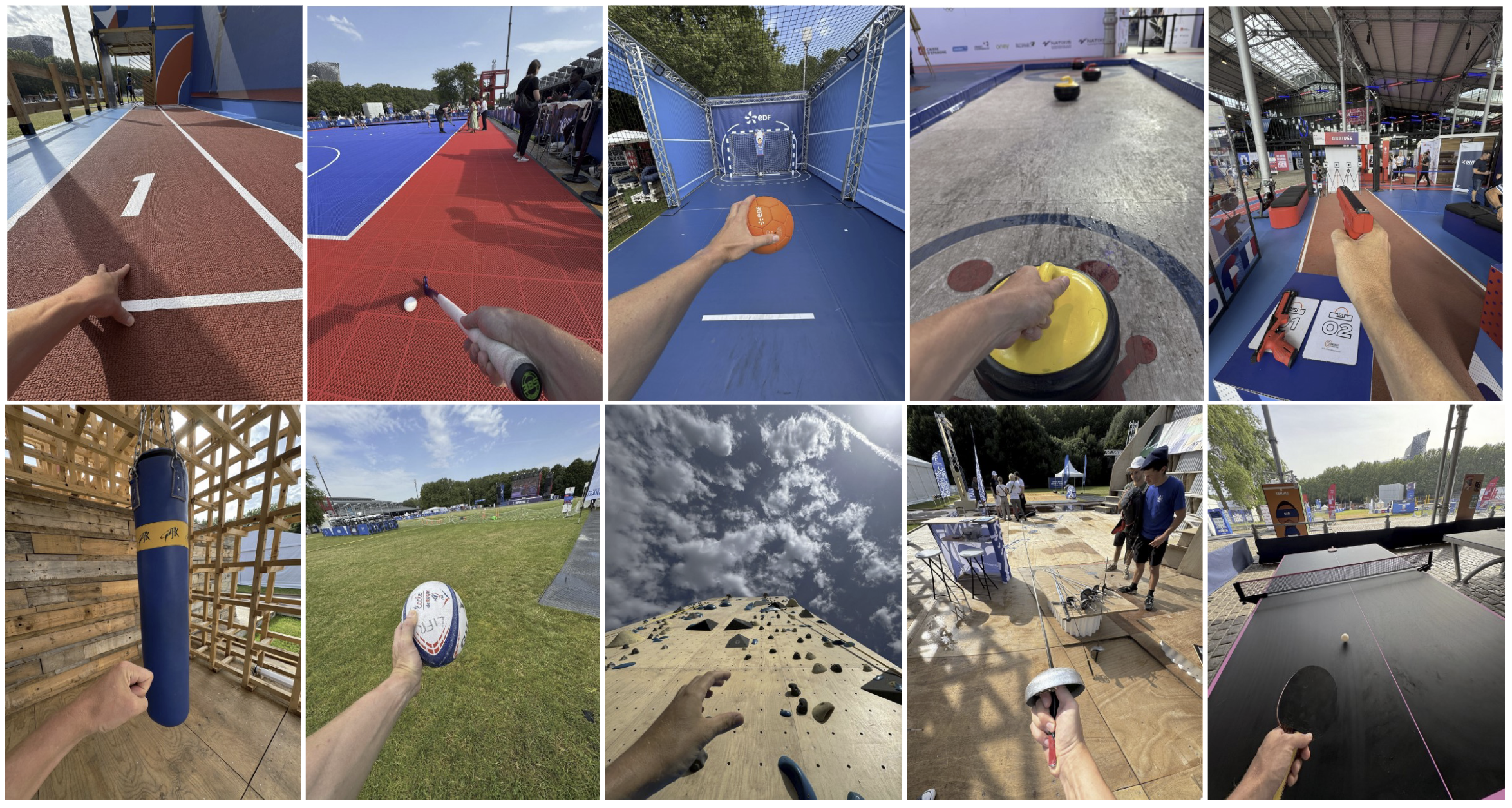
The Impact of Real-World Environments on Designing Activity-Specific Visualizations for Optical-See-Through Displays
Authors: Charles-Olivier Dufresne-Camaro, Bradley Rey, Pourang Irani
paper link
Collecting Information Needs for Egocentric Visualizations while Running
Authors: Ahmed Elshabasi, Lijie Yao, Petra Isenberg, Charles Perin, Wesley Willett
paper link
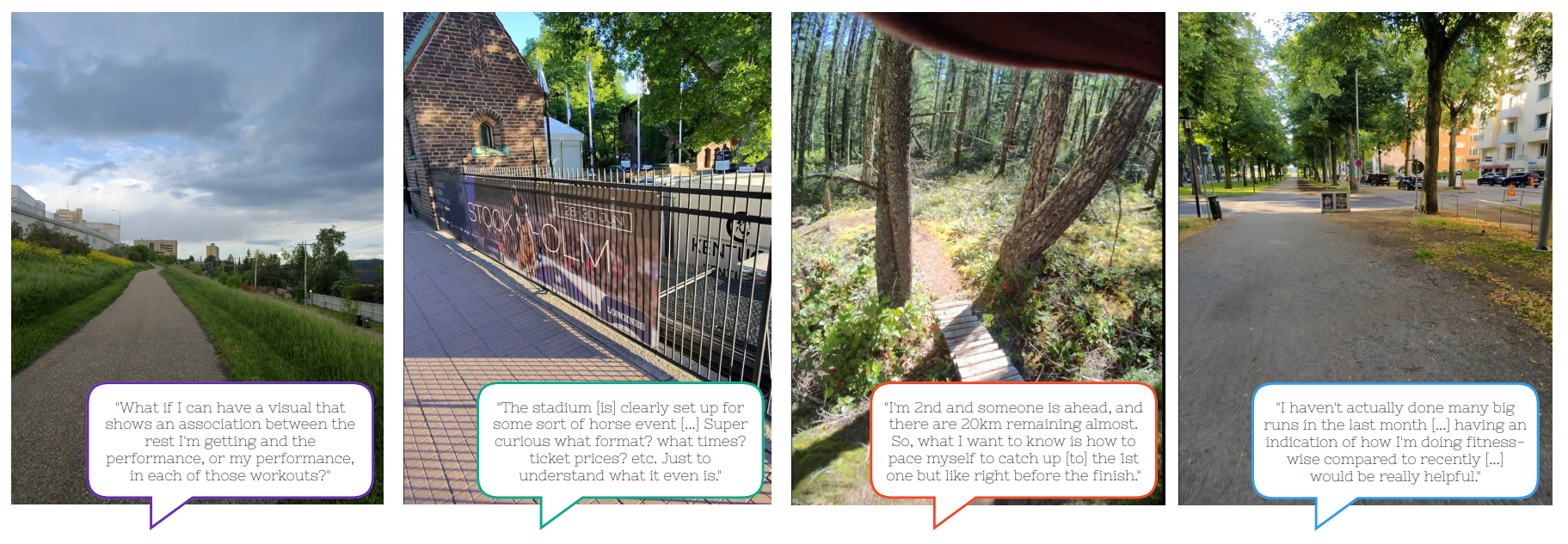
Collaborative XRTactics: A Formative Study on Tactical Communication in Outdoor Team Sports
Authors: Ut Gong, Qihan Zhang, Ziqing Yin, Stefanie Zollmann
paper link
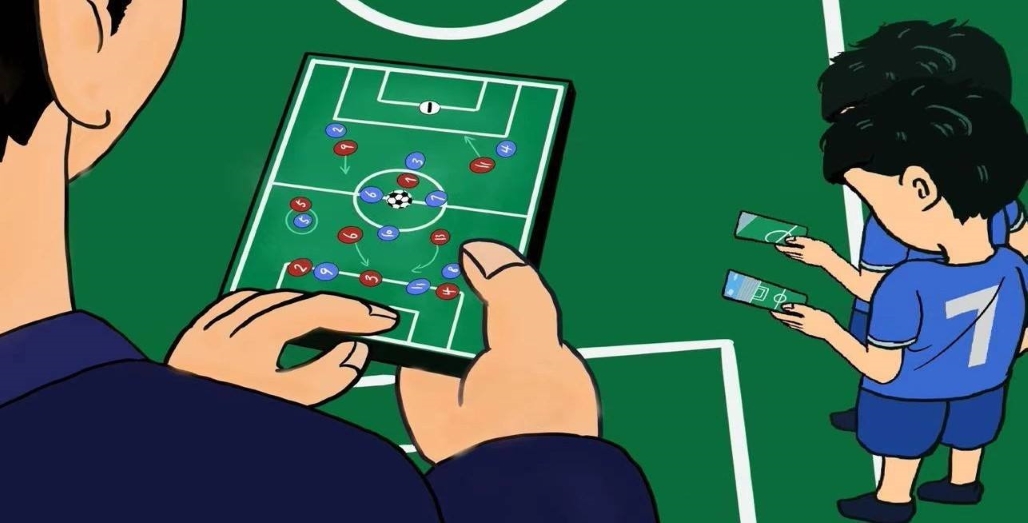
Achieving Flow State in Sports with Visual Analytics: Surfing and Spelunking Perspectives
Author: Christophe Hurter
paper link

PanoCoach: Enhancing Tactical Coaching and Communication in Soccer with Mixed-Reality Telepresence
Authors: Andrew Kang, Hanspeter Pfister, Tica Lin
paper link
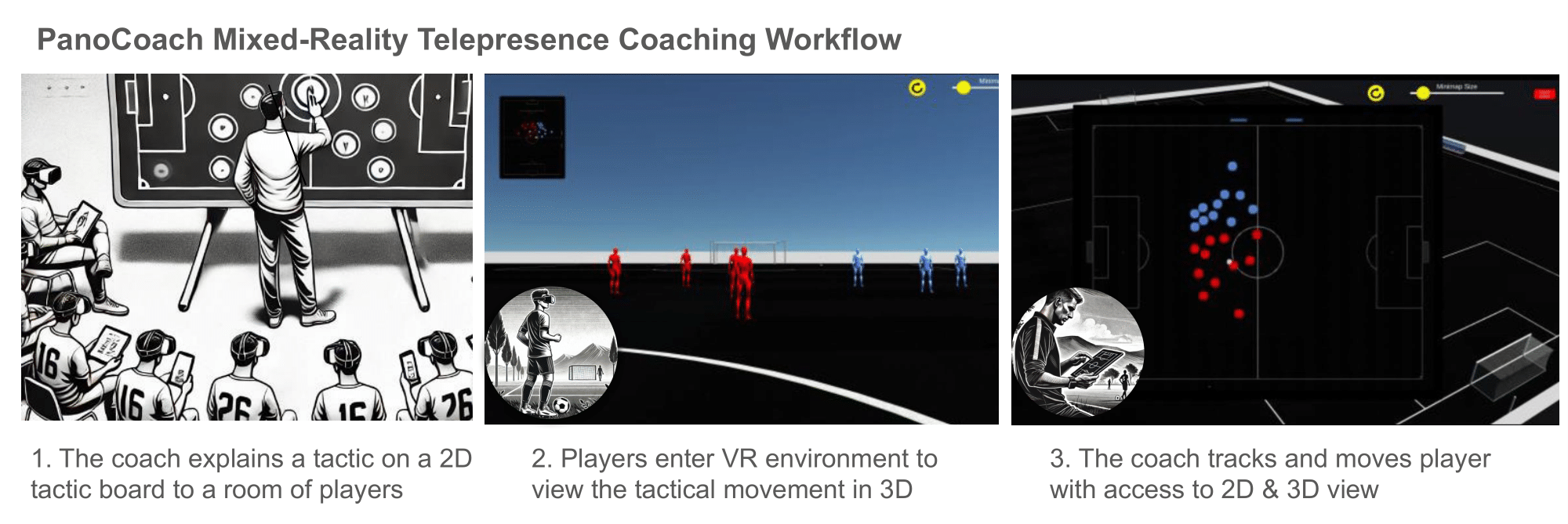
Understanding User Needs for Injury Recovery with Augmented Reality
Authors: Jade Kandel, Sriya Kasumarthi, Danielle Albers Szafir
paper link
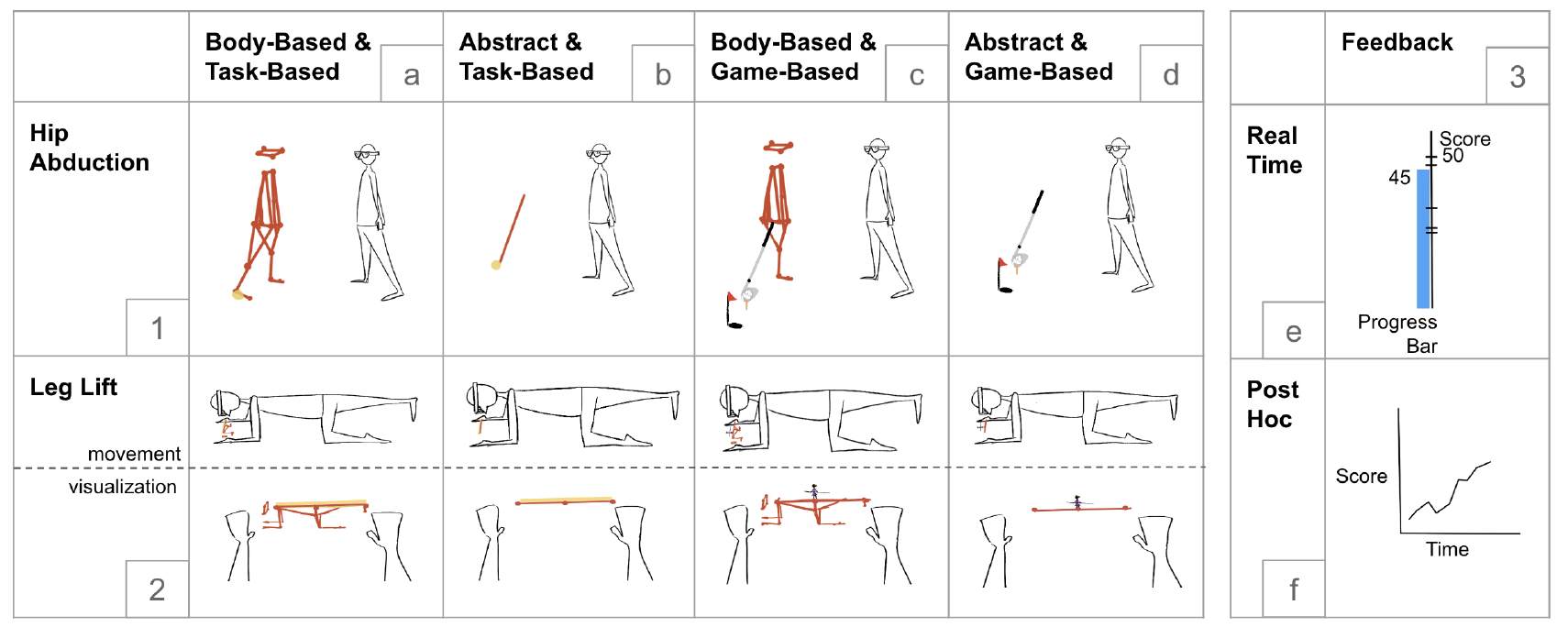
Program
| 08:30 - 08:45 | 🌴 🌴 Opening and Outline |
| 08:45 - 09:45 | 🐬 🎸 Presentations and Introduction of Challenges |
Note: 5 minutes presentation + 2-3 minutes Q&A for each paper
- HomeOlympics: Turning Everyday Outdoor Physical Activities into Olympic-Style Experience
- The Impact of Real-World Environments on Designing Activity-Specific Visualizations for Optical-See-Through Displays
- Collecting Information Needs for Egocentric Visualizations while Running
- Collaborative XRTactics: A Formative Study on Tactical Communication in Outdoor Team Sports
- Achieving Flow State in Sports with Visual Analytics: Surfing and Spelunking Perspectives
- PanoCoach: Enhancing Tactical Coaching and Communication in Soccer with Mixed-Reality Telepresence
- Understanding User Needs for Injury Recovery with Augmented Reality
| 09:45 - 10:00 | ☕ ☕ Coffee Break |
| 10:00 - 11:00 | 🔨 🏃 Hands-on Sessions in Groups |
| 11:00 - 11:30 | 📜 📜 Wrap-up Discussion & Next Steps |
| 11:30 | 🍰 🍟 Voluntary Workshop Lunch |
Organizers
Charles Perin, University of Victoria
Tica Lin, Harvard University
Lijie Yao, Inria and Université Paris-Saclay
Yalong Yang, Georgia Institute of Technology
Maxime Cordeil, University of Queensland
Wesley Willett, University of Calgary
